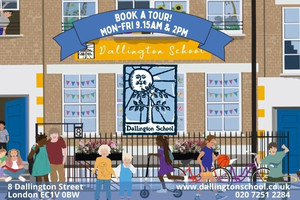The National Curriculum: What You Need To Know
What Is The National Curriculum?
Introduced in 1988, the National Curriculum is the basis for what is taught to all children in state schools from the ages of 5 to 16, or school years 1 to 11. The National Curriculum was originally introduced with the aim of making learning more balanced and consistent across schools and geographical areas.
What Does The National Curriculum Cover?
The National Curriculum covers a list of compulsory subjects that must be taught to all children during key stage 1 (year 1 and year 2) and key stage 2 (years 3 to 6). These subjects are: English; Maths; Science; Design and Technology; History; Geography; ICT (Information and Communication Technology); Art and Design; Music; Physical Education and - for key stage 2 only - a foreign language.
It is important to note that while schools and teachers prepare lessons based around these subjects and including the key components required at each level, children may not have specific “History” or “Science” lessons. Many schools, especially in the lower year groups, may have a “topic” for the week, half-term or term which is then used as a basis for teaching the different subjects within that framework. For example, the topic for a term may be “volcanoes” and lessons may include the geographical areas where volcanoes are present, learning about how volcanoes erupt, drawing diagrams of volcanoes, perhaps building a model of a volcano and looking at which types of substances may create an “eruption” for the model. In this way children learn the key elements required for each subject, but without necessarily being aware they are in a particular subject lesson.
Children’s progress is assessed regularly throughout each key stage, with SATs at the end of key stage 2 (key stage 1 SATs are to be made non compulsory from 2023). School reports will feature performance descriptors to show you what level your child is currently working at. Schools set these descriptors themselves, but essentially a child is either “at the expected level”, “working towards the expected level” or “working at greater depth” - meaning they are above the expected level.
The National Curriculum recommends that primary aged children learn maths every day. Again, children may not associate this with a formal maths lesson - their maths for the day may be incorporated as part of another lesson.
There are also three non-statutory subjects outlined in the National Curriculum, which schools are not required to teach. These are PSHE (Personal, Social and Health Education), RE (Religious Education) and Citizenship. All parents have the right to withdraw their child from RE if they wish to do so.
The National Curriculum also encourages teachers to promote home learning, and teachers often want to include parents with this. There may be formal “homework” set for children as they get older, or this may be in the form of suggestions for extra work to do at home.
Do Independent Schools Follow The National Curriculum?
Independent schools are not obliged to follow the National Curriculum. Most will still teach the core subjects mentioned above, though not to the specific levels outlined in the National Curriculum. They are also free to teach different subjects, and are not obliged to implement SATs.







